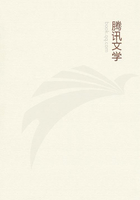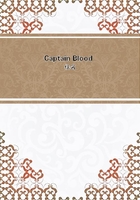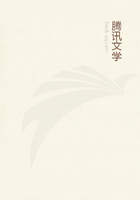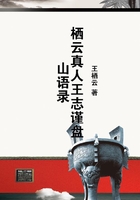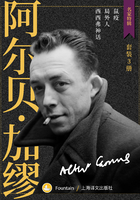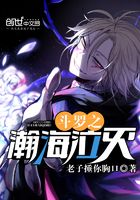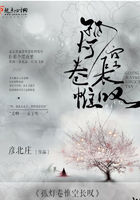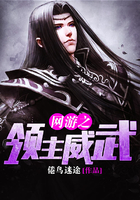1. Osiris a Corn-god.
THE FOREGOING survey of the myth and ritual of Osiris may suffice to prove that in one of his aspects the god was a personification of the corn, which may be said to die and come to life again every year. Through all the pomp and glamour with which in later times the priests had invested his worship, the conception of him as the corn-god comes clearly out in the festival of his death and resurrection, which was celebrated in the month of Khoiak and at a later period in the month of Athyr. That festival appears to have been essentially a festival of sowing, which properly fell at the time when the husbandman actually committed the seed to the earth. On that occasion an effigy of the corn-god, moulded of earth and corn, was buried with funeral rites in the ground in order that, dying there, he might come to life again with the new crops. The ceremony was, in fact, a charm to ensure the growth of the corn by sympathetic magic, and we may conjecture that as such it was practised in a simple form by every Egyptian farmer on his fields long before it was adopted and transfigured by the priests in the stately ritual of the temple. In the modern, but doubtless ancient, Arab custom of burying the Old Man, namely, a sheaf of wheat, in the harvest-field and praying that he may return from the dead, we see the germ out of which the worship of the corn-god Osiris was probably developed.
The details of his myth fit in well with this interpretation of the god.
He was said to be the offspring of Sky and Earth. What more appropriate parentage could be invented for the corn which springs from the ground that has been fertilised by the water of heaven? It is true that the land of Egypt owed its fertility directly to the Nile and not to showers; but the inhabitants must have known or guessed that the great river in its turn was fed by the rains which fell in the far interior. Again, the legend that Osiris was the first to teach men the use of corn would be most naturally told of the corn-god himself. Further, the story that his mangled remains were scattered up and down the land and buried in different places may be a mythical way of expressing either the sowing or the winnowing of the grain. The latter interpretation is supported by the tale that Isis placed the severed limbs of Osiris on a corn-sieve. Or more probably the legend may be a reminiscence of a custom of slaying a human victim, perhaps a representative of the corn-spirit, and distributing his flesh or scattering his ashes over the fields to fertilise them. In modern Europe the figure of Death is sometimes torn in pieces, and the fragments are then buried in the ground to make the crops grow well, and in other parts of the world human victims are treated in the same way. With regard to the ancient Egyptians we have it on the authority of Manetho that they used to burn red-haired men and scatter their ashes with winnowing fans, and it is highly significant that this barbarous sacrifice was offered by the kings at the grave of Osiris. We may conjecture that the victims represented Osiris himself, who was annually slain, dismembered, and buried in their persons that he might quicken the seed in the earth.
Possibly in prehistoric times the kings themselves played the part of the god and were slain and dismembered in that character. Set as well as Osiris is said to have been torn in pieces after a reign of eighteen days, which was commemorated by an annual festival of the same length. According to one story Romulus, the first king of Rome, was cut in pieces by the senators, who buried the fragments of him in the ground; and the traditional day of his death, the seventh of July, was celebrated with certain curious rites, which were apparently connected with the artificial fertilisation of the fig. Again, Greek legend told how Pentheus, king of Thebes, and Lycurgus, king of the Thracian Edonians, opposed the vine-god Dionysus, and how the impious monarchs were rent in pieces, the one by the frenzied Bacchanals, the other by horses.
The Greek traditions may well be distorted reminiscences of a custom of sacrificing human beings, and especially divine kings, in the character of Dionysus, a god who resembled Osiris in many points and was said like him to have been torn limb from limb. We are told that in Chios men were rent in pieces as a sacrifice to Dionysus; and since they died the same death as their god, it is reasonable to suppose that they personated him. The story that the Thracian Orpheus was similarly torn limb from limb by the Bacchanals seems to indicate that he too perished in the character of the god whose death he died.
It is significant that the Thracian Lycurgus, king of the Edonians, is said to have been put to death in order that the ground, which had ceased to be fruitful, might regain its fertility.
Further, we read of a Norwegian king, Halfdan the Black, whose body was cut up and buried in different parts of his kingdom for the sake of ensuring the fruitfulness of the earth. He is said to have been drowned at the age of forty through the breaking of the ice in spring. What followed his death is thus related by the old Norse historian Snorri Sturluson: He had been the most prosperous (literally, blessed with abundance) of all kings. So greatly did men value him that when the news came that he was dead and his body removed to Hringariki and intended for burial there, the chief men from Raumariki and Westfold and Heithm?rk came and all requested that they might take his body with them and bury it in their various provinces; they thought that it would bring abundance to those who obtained it. Eventually it was settled that the body was distributed in four places. The head was laid in a barrow at Steinn in Hringariki, and each party took away their own share and buried it. All these barrows are called Halfdan's barrows. It should be remembered that this Halfdan belonged to the family of the Ynglings, who traced their descent from Frey, the great Scandinavian god of fertility.

